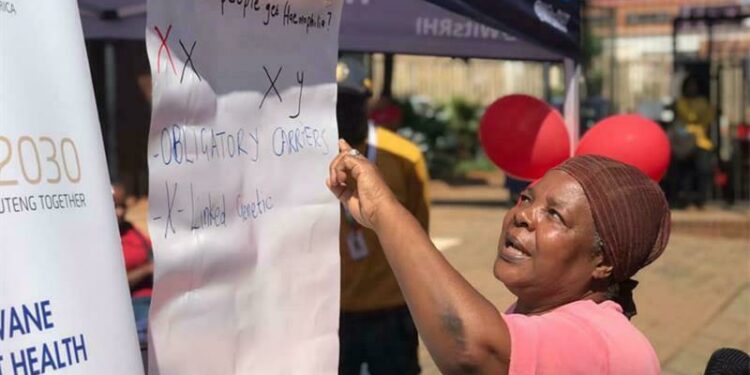BY: MASHUDU MAGADU
The Gauteng health department is encouraging residents to undergo haemophilia check-ups this
month.
Steve Biko and Dr George Mukhari academic hospitals have been listed as two of the
four facilities in the province that are specialised to treat haemophilia.

The Gauteng health department commemorated World Haemophilia Day on April 17 under the theme
“Equitable access for all: recognising all bleeding disorders”.
The department hopes that residents will use the month to gain knowledge of inherited
blood disorders and practice prevention more than treatment in children and adults. The
common symptoms of haemophilia in infants include excessive bruising that takes
weeks to heal, mouth bleeds, and bleeding into joints, soft tissues and muscles.
“When a person with haemophilia is injured, they will have prolonged bleeding as they
do not have the factor that is needed to make a firm clot. Although small cuts on the
skin are not usually a problem, however, bleeding into any deeper area of the body can
be harmful,” explained the statement.
Haemophilia is an inherited disorder that prevents stable blood clotting. Around 30% of
boys with haemophilia may have no family history of the disorder, however, most
mothers of these children will have a male relative on their maternal side who was born
with it.
“To ensure that there is no gap between diagnosis and treatment, the GDoH working
with the Haemophilia Foundation has provided the necessary training to nursing staff in
local clinics and regional hospitals to detect symptoms of haemophilia. It is so that the
patient can be referred to tertiary institutions for effective treatment.” Said Dr Mukhuri.
















